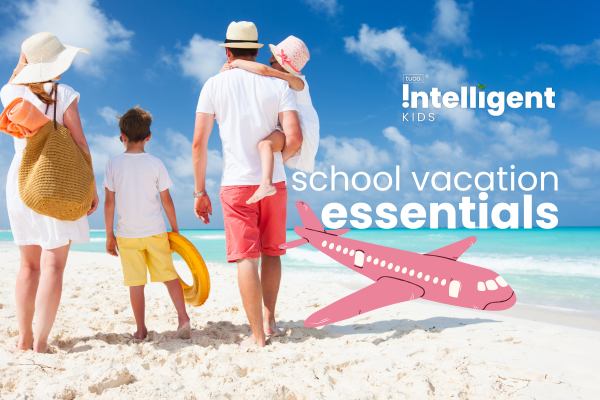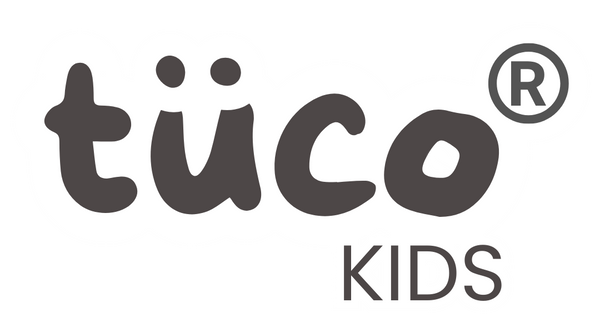
School Vacation Essentials for Kids
As the school year winds down, both kids and parents eagerly anticipate the arrival of summer vacation. This period is perfect for family trips, relaxation, and fun activities. However, it's also important to ensure that kids maintain healthy routines and take care of their skin and hair. In this comprehensive guide, we'll cover all the essentials needed for a smooth and enjoyable school vacation, from kids' skincare and haircare to maintaining a healthy diet and routine, along with intelligent parenting tips.
1. Kids Skincare: Keeping Skin Safe and Healthy
a. Importance of Kids' Skincare
Children’s skin is delicate and more sensitive than adults’, making it crucial to establish a skincare routine. Proper skincare can prevent issues like dryness, sunburn, and irritation.
b. Daily Skincare Routine
- Cleansing: Use a gentle, hypoallergenic cleanser to remove dirt and impurities.
- Moisturizing: Apply a kid-friendly moisturizer to keep the skin hydrated.
- Sun Protection: Choose a broad-spectrum sunscreen with at least SPF 30. Reapply every two hours, especially after swimming or sweating.
c. Dealing with Specific Skin Concerns
- Dry Skin: Use thicker creams and avoid long, hot baths.
- Eczema: Look for products free of fragrances and dyes. Consult a pediatric dermatologist for persistent issues.
- Bug Bites and Rashes: Keep an anti-itch cream handy and dress kids in protective clothing during outdoor activities.
2. Kids Haircare: Maintaining Healthy and Manageable Hair
a. Importance of a Haircare Routine
Kids’ hair, like their skin, requires regular care to stay healthy and tangle-free. A good haircare routine can prevent issues such as dryness, dandruff, and lice.
b. Daily Haircare Tips
- Shampooing: Use a mild, tear-free shampoo. Depending on your child’s hair type, shampooing every other day is usually sufficient.
- Conditioning: Apply a lightweight conditioner to prevent tangles and keep the hair soft.
- Brushing: Use a wide-toothed comb or a detangling brush to gently remove knots.
c. Addressing Common Hair Issues
- Dry Scalp and Dandruff: Opt for an anti-dandruff shampoo formulated for kids.
- Lice Prevention: Regularly check your child’s hair and use preventive sprays or essential oils like tea tree oil.
3. Natural Skincare for Kids: Choosing Safe and Effective Products
a. Benefits of Natural Skincare
Natural skincare products are often free from harsh chemicals and fragrances, making them ideal for sensitive young skin. They also offer a safer alternative for long-term use.
b. Key Ingredients to Look For
- Aloe Vera: Soothes and hydrates the skin.
- Shea Butter: Provides deep moisturization.
- Coconut Oil: Acts as a natural moisturizer and has antibacterial properties.
c. DIY Natural Skincare Recipes
- Homemade Sunscreen: Combine zinc oxide with coconut oil and shea butter.
- Soothing Oatmeal Bath: Grind oats into a fine powder and add to bathwater to relieve itchy skin.
4. Healthy Diet: Fueling Active Bodies and Minds
a. Importance of a Balanced Diet
A nutritious diet is essential for growth, energy, and overall health. It helps in maintaining a healthy weight, strengthening the immune system, and supporting cognitive development.
b. Key Nutritional Components
- Fruits and Vegetables: Aim for a rainbow of colors to ensure a variety of vitamins and minerals.
- Whole Grains: Include whole wheat, brown rice, and oats.
- Protein: Opt for lean meats, beans, nuts, and seeds.
- Dairy: Ensure adequate intake of calcium and vitamin D through milk, cheese, and yogurt.
c. Healthy Snack Ideas
- Fruit Kabobs: Skewer pieces of fresh fruit for a fun and nutritious snack.
- Veggie Sticks with Hummus: Slice carrots, cucumbers, and bell peppers to dip in hummus.
- Yogurt Parfaits: Layer yogurt with granola and berries.
5. Healthy Routine for Kids During School Vacation
a. Establishing a Daily Routine
While vacations are a time to relax, maintaining a routine helps kids feel secure and manage their time effectively.
b. Key Elements of a Healthy Routine
- Sleep: Ensure kids get 9-11 hours of sleep per night. Keep bedtime and wake-up time consistent.
- Physical Activity: Encourage at least one hour of physical activity each day. This can include sports, swimming, or outdoor play.
- Screen Time: Limit screen time to 1-2 hours per day. Encourage outdoor activities and creative play instead.
- Reading and Learning: Incorporate educational activities such as reading, puzzles, and learning games.
6. Intelligent Parenting: Balancing Fun and Responsibilities
a. Encouraging Independence
Allowing kids to take on age-appropriate responsibilities helps build confidence and life skills. This can include packing their own bags, helping with meal preparation, and keeping their rooms tidy.
b. Quality Family Time
Plan activities that the whole family can enjoy together, such as hiking, biking, or visiting local attractions. This strengthens family bonds and creates lasting memories.
c. Managing Stress and Emotions
Teach kids healthy ways to cope with stress and express their emotions. This can include deep breathing exercises, journaling, or talking about their feelings.
Conclusion
Preparing for a school vacation involves more than just planning fun activities. Ensuring your child maintains a healthy skincare and haircare routine, follows a balanced diet, sticks to a daily routine, and receives intelligent parenting guidance is key to a well-rounded and enjoyable break. By incorporating these essentials, you can help your child have a safe, healthy, and happy vacation.
FAQs
1. What is the best way to protect my child's skin from the sun? Use a broad-spectrum sunscreen with at least SPF 30, apply it generously 15 minutes before sun exposure, and reapply every two hours.
2. How often should I wash my child's hair? Typically, every other day is sufficient. Adjust based on your child’s hair type and activity level.
3. What are some healthy snacks for kids during summer vacation? Fruit kabobs, veggie sticks with hummus, and yogurt parfaits are great options.
4. How can I limit my child's screen time during vacation? Set clear limits and encourage alternative activities like outdoor play, reading, and family games.
5. How can I help my child manage stress during vacation? Teach them coping strategies such as deep breathing, journaling, and discussing their feelings openly.





